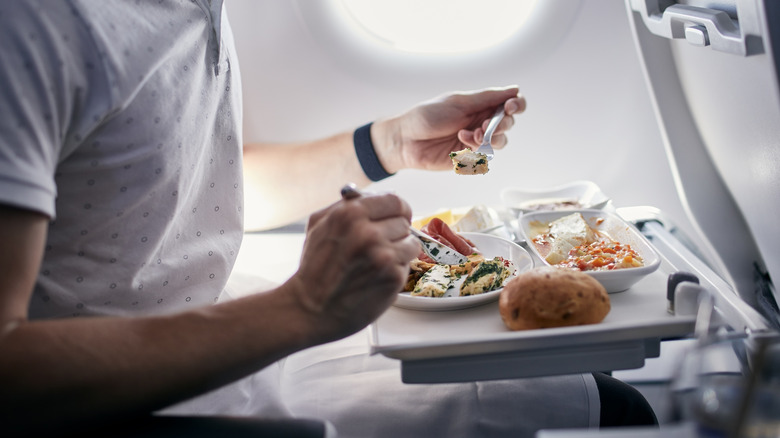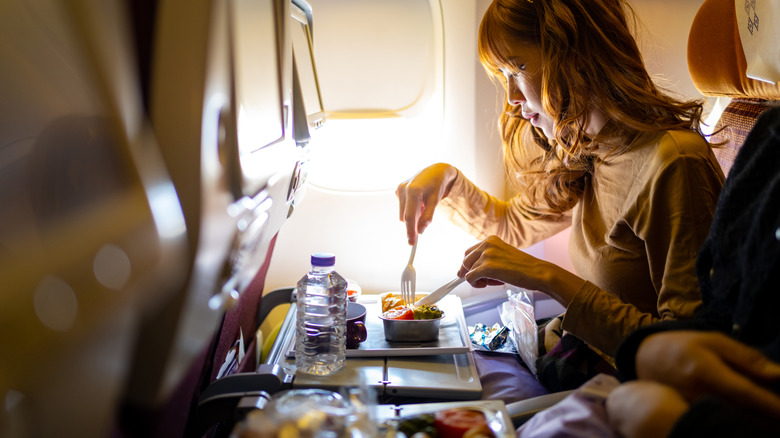Ever Wonder Why Food Tastes Different On Planes?
If you're on an international flight or you're sitting in a cabin that actually serves food these days, you may not be that excited. Since time immemorial, people have compared bland-tasting meals to airplane food, and it isn't just an empty insult. There is actually some science behind why some foods taste different when you're on a plane. It's not the food that's bland, but rather how your ability to taste is affected. The first two reasons have to do with the air on the plane. The low air pressure in the cabin combined with low humidity makes taste buds less sensitive to both sweet and salty flavors. If you've ever craved something like pretzels or chips while flying, it may be because you're not sensing the saltiness in your snack bag the same way on a plane as you would in your kitchen.
That isn't the only thing that affects our perception of saltiness and sweetness, however. Oddly enough, the vibration and noise in the plane also lower your ability to taste these flavors. In fact, you can test this yourself. Try eating something sweet or salty in a quiet room, and then with headphones on to see how it affects your perception of the flavor.
What tastes good on a plane and how your sense of smell is affected
Other tastes, such as umami, sour, spicy, and bitter, however, are unaffected by noise, low humidity, and low air pressure on a plane. If your food has these flavors, you may enjoy them more than sweet or salty foods. You may also crave ginger ale more on a plane, as you're likely to experience it as being less sweet and more refreshing than you do at home. (If you do order a ginger ale, however, never order it with ice on a plane: A 2015 study published in the International Journal of Environmental Research and Public Health found E.coli bacteria in aircraft water supplies, which could end up in your ice.) Some people also particularly enjoy a bloody mary on a plane, but flight attendants advise against it. While the umami and extra saltiness of the famous drink may taste even more delicious at 30,000 feet, the high salt content can cause water retention, and the alcohol can dehydrate you even more than the dry air alone.
Another thing that can change the taste of food in the air is your sense of smell. According to a 2015 study published in Flavour, between 75% and 95% of what we consider taste is actually smell. The dry air in the airplane cabin affects our odor receptors, and that can make food taste pretty bland. Your best bet when flying is to try to avoid salty snacks and alcohol that can make you feel crummy, and stick to foods and drinks that are spicy, sour, or bitter. Do your best to stay hydrated — though it's a good idea to skip any water on the plane that isn't bottled — and remember to bring your reusable bottle with you to fill up in the airport.

